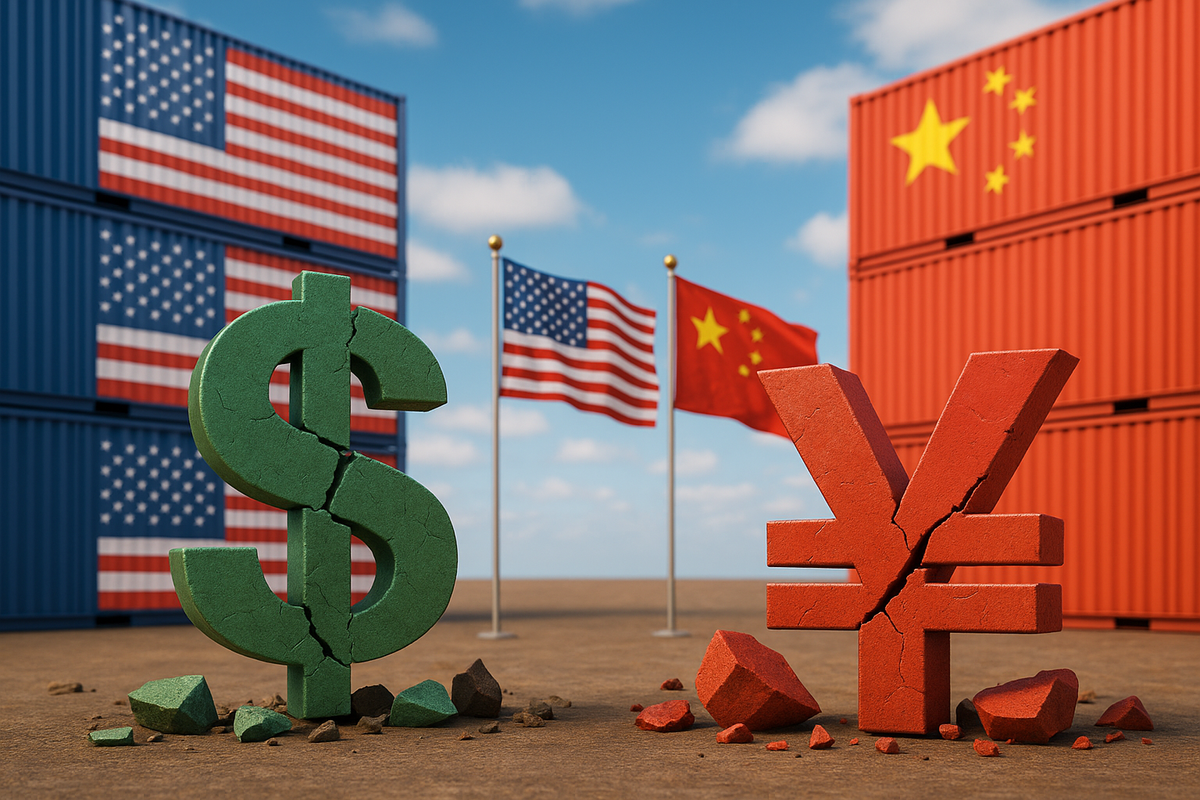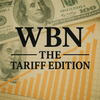
By Elke Porter | WBN News Global | May 1, 2025
Starting May 2, 2025, the United States will officially end its de minimis tariff exemption for shipments valued under $800 originating from China and Hong Kong. This move, which primarily targets fast-fashion juggernauts like Shein and Temu, marks a significant shift in the U.S. trade policy and could ripple across the global e-commerce landscape.
Under the previous rule, small parcels entering the U.S. from abroad—if valued under $800—were generally exempt from customs duties. This allowed companies based in China to flood the American market with low-cost goods shipped directly to consumers. But now, these same shipments will face a $100 flat postal duty or, in the case of private courier deliveries, a steep 120% tariff.
The move is designed to address longstanding trade imbalances and offer protection to domestic retailers who have struggled to compete with the ultra-low prices of imported goods. It’s a bold step in what appears to be a broader return to protectionist policies—and it’s already sending shock-waves through e-commerce platforms and supply chains worldwide.
Why Should Canadian Sellers Pay Attention?
While Canadian exporters to the U.S. are currently exempt from this change, analysts caution that this could be a warning sign. If the U.S. chooses to extend tariff restrictions to other countries, small Canadian businesses relying on American customers could suddenly face increased costs and reduced competitiveness.
With cross-border sales forming a vital revenue stream for many Canadian entrepreneurs, especially in industries like crafts, apparel, and health products, any future restriction could create logistical and financial hurdles.
Specific Stores That May Have a Problem
- Big-Box Retailers:
- Walmart: Sources a vast range of products from China, including electronics, clothing, toys, and household goods, leveraging low-cost manufacturing for competitive pricing.
- Target: Imports similar categories of goods, though with a slightly more curated selection compared to Walmart.
- Dollar Stores:
- Dollar General, Dollar Tree, Family Dollar: These chains specialize in low-priced items like kitchenware, party supplies, cleaning products, and small electronics, with a significant portion manufactured in China due to cost advantages. Of course, now many families will face problems with birthday parties, weddings, retirement parties who rely on these goods.
- Discount Retailers:
- Big Lots: Offers closeout and overstock goods, many of which are inexpensive imports from China, including furniture, decor, and seasonal items.
- Ollie’s Bargain Outlet: Sells discounted goods, often surplus or discontinued items, with a heavy reliance on Chinese manufacturing.
- Fast Fashion Retailers:
- Shein, Temu, Fashion Nova: These online-focused retailers depend almost entirely on low-cost Chinese production for trendy clothing and accessories, often shipping directly from manufacturers.
- Forever 21, H&M: While more diversified, they still source significant portions of their inventory from China for affordability.
- Shoe stores like Nike, Adidas, Puma, and other major athletic and casual footwear retailers heavily depend on Chinese manufacturing for millions of affordable shoes, leveraging China's low-cost production and supply chain efficiency to produce sneakers, boots, and other footwear at scale.
- General Merchandise and Variety Stores:
- Five Below: Specializes in products priced under $5, such as toys, tech accessories, and home goods, predominantly made in China.
- Miniso: A Chinese-owned chain selling affordable lifestyle products, stationery, and cosmetics, with most goods produced in China.
- Online Marketplaces:
- Amazon: Many third-party sellers on Amazon, particularly those offering low-cost electronics, home goods, and apparel, source directly from Chinese suppliers or platforms like Alibaba.
- Wish, AliExpress: These platforms connect consumers directly to Chinese manufacturers, offering millions of cheap goods from factories in China.
- E-commerce platforms like Shopify, Etsy, and independent t-shirt stores often rely on cheap goods from China for products such as custom apparel, accessories, and home decor, sourcing through suppliers like Alibaba to maintain low costs and high margins.
- Craft and Hobby Stores:
- Michaels, Hobby Lobby: Import affordable craft supplies, seasonal decorations, and artificial flowers, with China being a primary supplier due to low production costs.
- Home Goods and Decor Stores:
- HomeGoods, At Home: Sell affordable furniture, kitchenware, and decor, much of which is manufactured in China to keep prices low.
What Can Businesses Do Now?
This is more than a policy update—it's a wake-up call. Canadian and international e-commerce players should begin reviewing their logistics strategies. Options include setting up U.S.-based fulfillment centers, re-evaluating tariff codes, and staying updated on trade policy developments.
In this new Tariffs Edition of cross-border trade, those who adapt quickly will protect their margins—and their markets.
Stay informed. Stay nimble.
#Tariff News #US China Trade #Ecommerce Trends #Cross Border Business #Canadian Exports #Shein Temu #Trade Policy 2025 #Shipping Tariffs #WBN News Global #WBN News Tariffs #Elke Porter
Connect with Elke at Westcoast German Media or on LinkedIn: Elke Porter or contact her on WhatsApp: +1 604 828 8788



